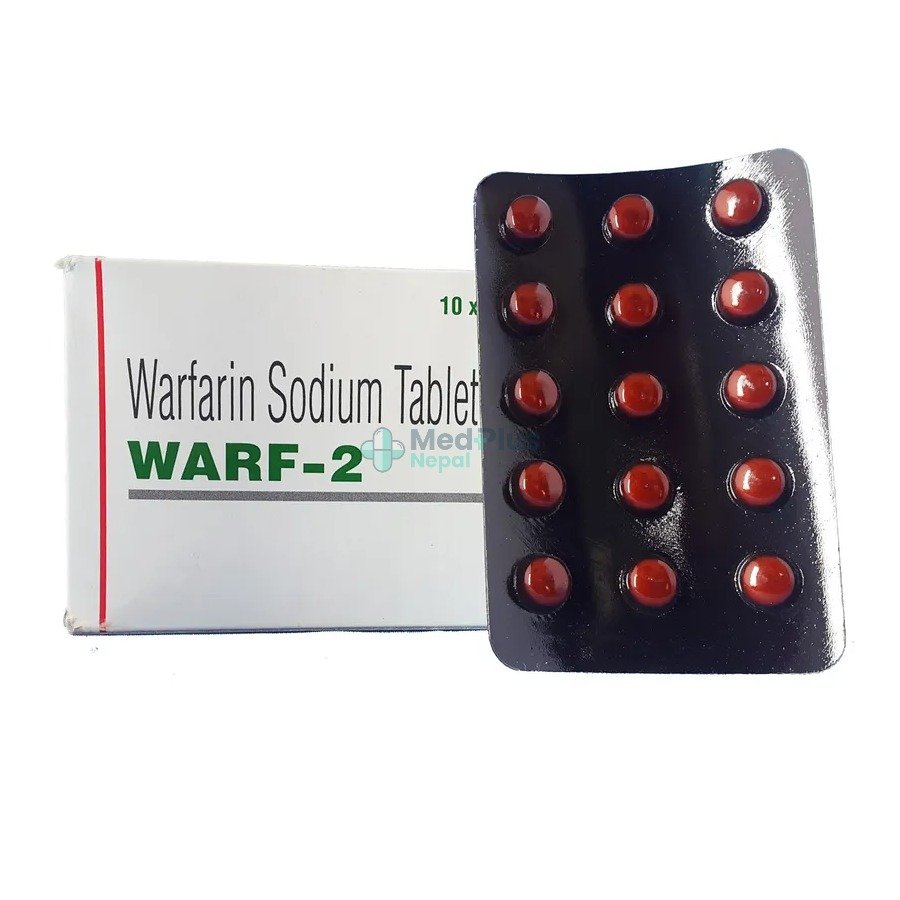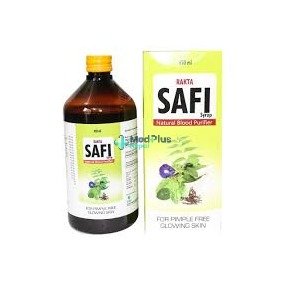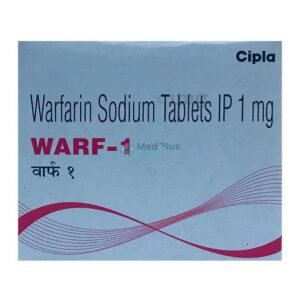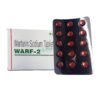- Warf 2 mg Tablet is an oral anticoagulant, commonly referred to as a blood thinner, containing the active ingredient warfarin.
- It is primarily prescribed to prevent and treat the formation of harmful blood clots in various parts of the body, including the legs (deep vein thrombosis), lungs (pulmonary embolism), brain, and heart.
- By inhibiting the synthesis of vitamin K-dependent clotting factors—specifically factors II, VII, IX, and X—warfarin reduces the blood’s ability to clot, thereby mitigating the risk of serious conditions such as strokes and heart attacks.
Uses:
- Deep Vein Thrombosis (DVT): Prevents and treats blood clots in deep veins, typically in the legs.
- Pulmonary Embolism (PE): Prevents and treats blood clots that travel to the lungs.
- Stroke Prevention: Reduces the risk of stroke in individuals with certain heart conditions, such as atrial fibrillation.
- Myocardial Infarction (Heart Attack): Used as an adjunct therapy to prevent clot formation in patients at risk.
Dosage and Administration: Warf 2 mg Tablet should be taken exactly as prescribed by a healthcare professional. It can be consumed with or without food, but it’s advisable to take it at the same time each day to maintain consistent blood levels. Regular monitoring of blood clotting parameters, such as the International Normalized Ratio (INR), is essential to ensure the medication’s efficacy and safety.
Side Effects: Common side effects include bleeding complications, such as:
- Bleeding gums
- Nosebleeds
- Heavy menstrual periods
- Prolonged bleeding from cuts
- Blood in urine or stools
- Easy bruising
In rare cases, severe bleeding or allergic reactions may occur. If any unusual bleeding or symptoms arise, it’s crucial to seek immediate medical attention.
Contraindications:
- Allergy to warfarin or any component of the tablet
- Pregnancy, due to the risk of fetal harm
- Active bleeding disorders or conditions with a high risk of bleeding
- Recent surgeries or procedures with a high risk of bleeding
- Uncontrolled high blood pressure
Precautions:
- Dietary Considerations: Foods rich in vitamin K, such as spinach, broccoli, and other leafy greens, can affect warfarin’s efficacy. It’s important to maintain a consistent diet and consult with a healthcare provider before making significant dietary changes.
- Alcohol Consumption: Alcohol can interfere with warfarin’s effectiveness and increase the risk of bleeding. It’s advisable to limit or avoid alcohol intake while on this medication.
- Drug Interactions: Warf 2 mg Tablet can interact with various medications, including over-the-counter drugs, herbal supplements, and other prescription medications. Always inform your healthcare provider about all the substances you are taking to avoid potential interactions.
Pregnancy and Breastfeeding: Warf 2 mg Tablet is contraindicated during pregnancy due to the risk of fetal harm. However, it may be used during breastfeeding under medical supervision, as it is considered safe with minimal risk to the nursing infant.
Storage: Store the medication at room temperature, away from moisture and heat. Keep it out of reach of children and pets.









Reviews
There are no reviews yet.